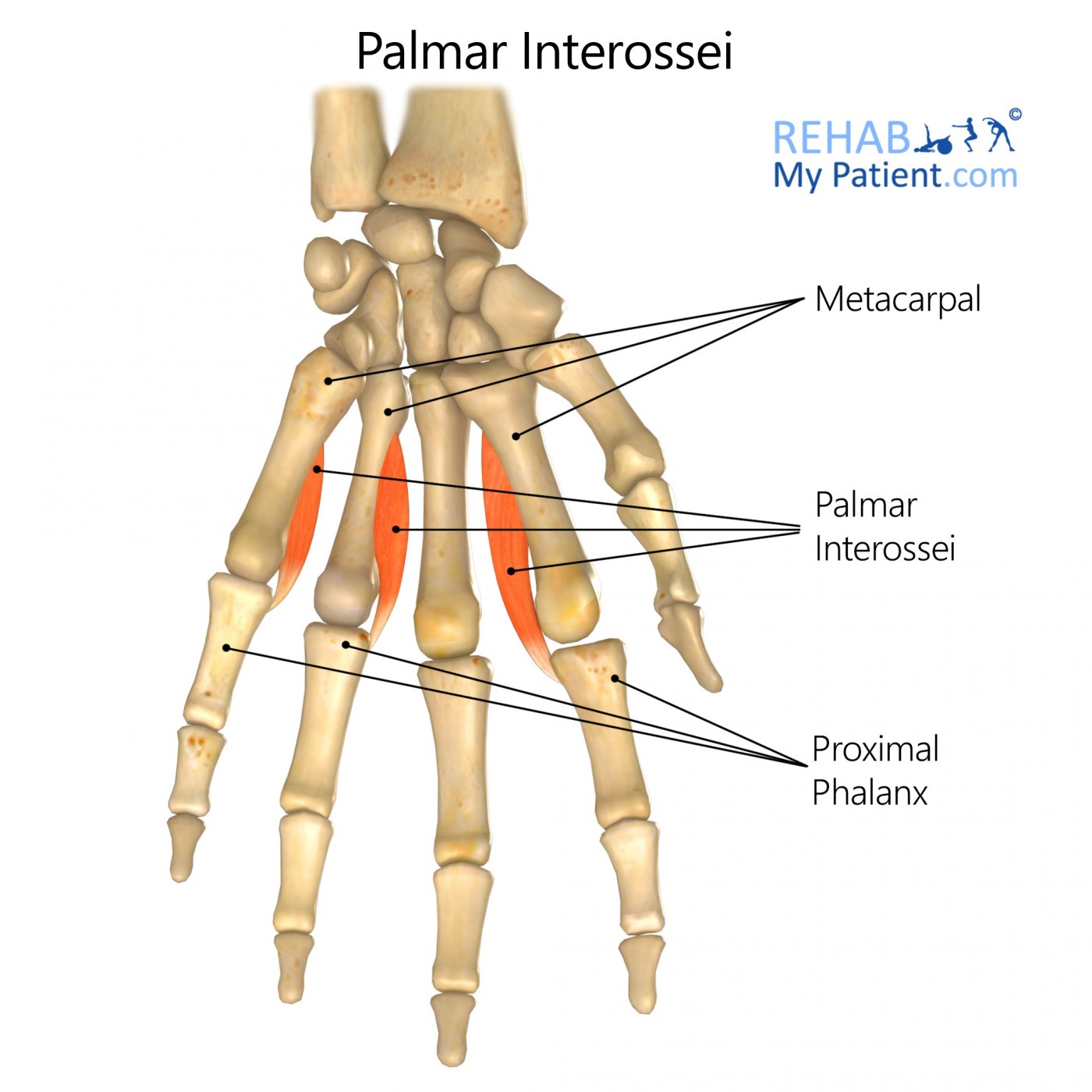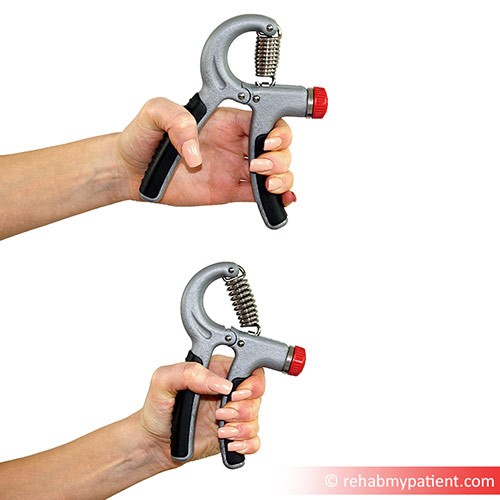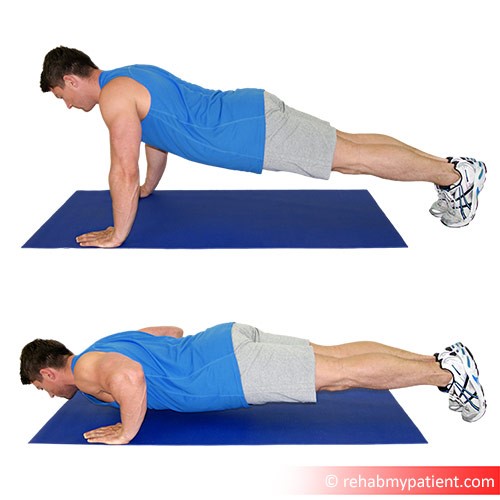Palmar Interossei
Opublikowano dnia 28th Jul 2020 / Opublikowano w: Ręka/Palce/Kciuk

General information
Palmar interossei are the muscles of the hand located on the anterior side of the metacarpals.
Literal meaning
The muscle between the bones on the flat of the hand.
Interesting information
Palmar interossei are the skeletal muscles of the hand that are responsible for movement of the fingers.
Injury to the palmar interossei most frequently occurs due to overuse, such as typing for many hours. Inflammation of the muscles occur, making it difficult or painful to shake hands, type, or wiggle the fingers. To tell if the muscles are injured, squeeze the metacarpal bones. If no pain occurs, there is no injury or inflammation. Pain relievers, like NSAIDs, will help to reduce the inflammation and discomfort. The other treatments include massaging the affected muscles and rest.
Origin
Sides of metacarpals facing midline.
Insertion
Bases of proximal phalanges.
Extensor expansions.
Function
Adduction of fingers.
Flexion of fingers.
Extension of fingers.
Nerve supply
Deep branch of the ulnar nerve.
Blood supply
Palmar metacarpal artery of the deep palmar arch.

Relevant research
Due to the frequency of Carpal Tunnel Syndrome (CTS), it is important to have non-invasive, quick techniques to diagnose the syndrome. Conduction studies and electromyography (ENMG) are necessary in the diagnosis of CTS, but other techniques may also aid in the diagnosis. The new technique involved the use of platinum surface disc electrodes placed on the affected hand on the palm in the position corresponding to the second lumbrical muscle and the interossei muscle with the placement of a passive electrode on the third finger. The new technique proved to be more effective in the diagnosis of CTS in less severe cases. For advanced cases, the new technique obtains a compound muscle action potential from the second lumbrical confirming the diagnosis as well.
Resende, L, Adamo, A, Bononi, A, Castro, H, Kimaid, P, Fortinguerra, C, Schelp, A. (2000). “Test of a new technique for the diagnosis of carpal tunnel syndrome”. Journal of Electromyography and Kinesiology. 10:2, 127-133.
Palmar interossei exercises

Hand grippers
To begin, choose a hand gripper that is at a challenging level. Hold the gripper in the hand and squeeze it together, hold for a few seconds, and release. Perform twelve repetitions for three sets in each hand. To make the exercise more challenging, squeeze the gripper together and hold for as long as possible.

The Hang
Begin with wide arms. Grab the pull-up bar and hang for one minute at a time if possible. Repeat this exercise three times a day. If not challenging enough, try to hang with only the fingertips.

The fingertip push-up
Assume the push-up position with the hands under the shoulders lifting the body off the ground and the legs in line with the body, on the toes. If on the toes is too hard, assume the position on the knees, making sure the body is aligned properly. Lift the palms off the floor until the fingertips are supporting the body. Lower the body toward the floor and push-up to resume the starting position. Perform twelve repetitions for three sets. Complete this exercise three times a week.
Zapisać się
Zarejestruj się już teraz, aby skorzystać z bezpłatnego okresu próbnego!
Zacznij korzystać z Rehab My Patient już dziś i zrewolucjonizuj proces przepisywania ćwiczeń, aby zapewnić sobie skuteczną rehabilitację.
Rozpocznij 14-dniowy bezpłatny okres próbny